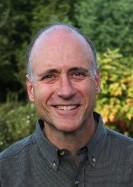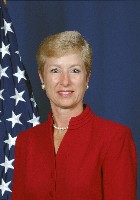Past Events
AidData Map-Off GIS Training
On Saturday, April 11, AidData will hold the Map-Off Competition – a hackathon-style event where you will work in teams to use GIS skills to solve problems and answer questions.
- Read this before attending any training. These geography basics will not be covered in trainings due to time constraints.
- Install QGIS on your computer before coming to the QGIS training.
- Bring a laptop to all training sessions.
- Want to get ahead? No Spring Break plans? Tutorials (including screenshots + data!) are linked in the Resources tab of the signup spreadsheet. Computers in Swem and Morton have ArcGIS desktop installed, and QGIS is open source ( = FREE and anyone can download and use it!)
SSRMC hosts Psychophysiological Methods in Political Science Workshop
Date: July, 2015
Place: Social Science Research Methods Center
In mid-July, the SSRMC hosted the first ever Psychophysiological Methods in Political Science Workshop. As one of only four active political psychophysiology labs in the country, government professor Jaime Settle’s Social Networks and Political Psychology Lab is breaking new ground in political science research. William & Mary student researchers John Stuart, Zarine Kharazian, and Edward Hernandez welcomed graduate students from Temple University, UN Lincoln, and UC Merced and W&M alumna Taylor Feenstra (currently a grad student at UC San Diego) to the three-day event to share their experiences conducting psychophysiological research and discuss strategies for moving the field forward. Read more here.
Prof. Paul Manna to Speak on “Education Policy, Performance, and Democratic Accountability: State and Local Voting Behavior in Elections for State Education Chief”
Date: Wednesday, April 22nd, 2015
Time: 5:00pm
Place: Social Science Research Methods Center
Please join us at the SSRMC to hear Prof. Paul Manna, Associate Professor of Government at the College discuss his work “Education Policy, Performance, and Democratic Accountability: State and Local Voting Behavior in Elections for State Education Chief,” detailed in the abstract below. Food and drinks will be provided! Abstract: Chief state school officers lead state education agencies (SEAs) and are responsible for overseeing implementation of state and federal education policy. Although every state has an SEA, chiefs assume their offices through various means, including by popular elections in around a dozen states. By studying these elections from 1986 to 2010, this paper addresses the following research question: Is voting behavior in elections for state education chief, in particular voter turnout in those races, associated with the content of policy and with student outcomes? Although the literature on voter turnout shows that turnout declines in down-ballot elections, the heightened attention to schooling via expanded testing and publication of accountability report cards has provided voters with much information to judge state education performance. By considering whether turnout in chief elections is sensitive to policy and outcomes, the analysis brings evidence to the debate about whether voters are capable of holding accountable their leaders who occupy relatively low-profile elected offices.
SNaPP Lab Career Center Event
Date: Wednesday, April 1st, 2015
Time: 4:00pm
Place: The Career Center
Making a Living Making a Difference: Non-Profit, Government, Environmental, and International Careers
Date: Saturday, March 28th, 2015
Time: 10:00am-2:45pm
Place: Morton 37
March 28th 10 a.m. – 2:45 p.m., Sadler Center 3rd Floor
For more information, please visit: http://career.wm.edu/CFM/
Political Scientist Don Green Visits William and Mary
Date: Friday, February 27th, 2015
Government Department Colloquium, 12:00 p.m., Morton 37
Field Experiments Workshop, 3:30-5:00 p.m., Morton 37
“The Accidental Diplomat: 35 Years In The Foreign Service” with Ambassador Katherine Canavan
Date: Thursday, November 20th, 2014
Time: 12:30-3:00pm
Katherine Hubay Canavan (formerly Peterson) was a Foreign Service Officer with the Department of State for more than 35 years. She retired after a distinguished career in November 2011, with the rank of Career Minister, the second highest in the Foreign Service. Since retiring, she has supported a number of military exercises as a subject matter expert, particularly those which emphasize comprehensive,
non-combat approaches incorporating various U.S. Government agencies, international and non-governmental organizations.
R Workshops
Wednesday, October 29th, 4:30-6:00 p.m., Morton Hall 244 Learning R: The Basics
(Advanced Registration Required)
Wednesday, November 5th, 4:30-6:00 p.m., Morton Hall 244 Learning R: Basic Data Analysis
(Advanced Registration Required)
Wednesday, November 12th, 4:30-6:00 p.m., Morton Hall 244 Learning R: Data Visualization
(Advanced Registration Required)
The goal of these workshops is to provide sufficient foundation for students in the basics of using R to equip them to explore and learn more on their own. More information can be found here.
Powerful feelings: Efficacy Beliefs and Political Action on Climate Change
Date: Monday, October 27th, 2014
Time: 12:30pm
Place: Social Science Research Methods Center
Neil Stenhouse, Center for Climate Change Communication, George Mason University Along with other psychological motivations like shared identity and perceptions of injustice, feelings of efficacy have been found to be one of the major factors associated with participation in collective action. There are specific subtypes of efficacy belief, which can be more or less important in explaining different types of behavior. For climate change, which type of efficacy has the most powerful effect on behavior? For those who wish to encourage action, is it more important to convince people that they as individuals are capable of making a meaningful contribution to collective efforts? To convince them that collective efforts will convince politicians to act? Or that the actions politicians take will be effective in stopping climate change? The work Neil is presenting uses confirmatory factor analyses of cross-sectional survey data to test whether conceptual distinctions between different types of efficacy belief for climate change have a psychological reality – whether they each exist as distinct, measurable psychological entities, or whether response items can be better explained as caused by more general latent variables. Using structural equation modeling, he tests how strongly efficacy beliefs are related to self-reported measures of participation in collective action. This work provides an important first step in determining which efficacy beliefs are psychologically distinguishable and potentially influential for complex social problems like climate.
Workshop on Social Network Theory
Date: Thursday, October 23rd, 2014
Time: 12:30pm
Place: Morton 37
Bob Huckfeldt, University of California—Davis Professor Huckfeldt is Distinguished Professor of Political Science at University of California-Davis and a member of the American Academy of Arts and Sciences. He is one of the leading scholars of public opinion, particularly social context and social networks. He will talk with students about the important concepts and ideas that underpin the study of social networks in politics.

